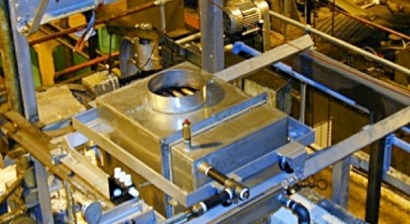
Intermet’s plant, which will be used by refractory product firm Intermet at its Oughtibridge plant near Sheffield, is expected to be the first of many to benefit from the state-of-the-art bio-technology which hit the headlines last year after being shortlisted for Best Green Technology at the International Green Awards.
Work on the plant has already begun, and benefits to Intermet will include: significantly lower fuel costs with complete independence from the National Grid; a cleaner, greener way of working; and a source of income, as the firm will sell a huge one megawatt of energy (worth £1,200,000) back to the Grid each year.
“Being shortlisted as a finalist at the International Green Awards was a massive boost for us as it brought us to the attention of big firms like Intermet. This is a big deal for us and the market is enormous. We are currently focusing on industrial and commercial use but we’ve been asked if we can make it small enough to go in a house – the good news is, there’s absolutely no reason why not,” comments Steve Mongan, co-director of Infinergy and creator of the technology.
The patented system feeds renewable bio-fuel wood pellets into a furnace which burn in a clean way producing steam but no carbon dioxide or toxins, unlike coal and gas. A unique heat exchange system uses the steam to power mini steam engines which then create electricity. It’s completely carbon neutral so no electricity is used from the Grid and it hits all the Government targets on clean energy.
“We met Steve and his co –director Mike Taylor of Infinergy initially by helping them with their Cyclonic Burner design and at that time we recognised the potential of this exciting new science,” explains Intermet’s Operations Director, Julian Gray. “This Cyclonic Burner will now be part of our new plant. This venture with Steve and his team at Infinergy gives Intermet the opportunity to utilise waste heat from a revolutionary new process that is fuelled by a renewable biomass pellets. The waste heat will be used to dry our foundry products whilst at the same time generating electricity through a steam engine. The electricity will be consumed at the plant with any excess energy being returned to the national grid.
“Biomass pellets are a certified source of renewable energy and represent a far more stable fuel source from a cost perspective. We need to embrace new technology such as this that has the potential to help us in more effectively controlling our cost base and therefore remain competitive in the markets that we serve. “
Steve Mongan, who also runs his own company Mongan Energy and is a mechanical engineer, has spent more than 30 years in applied environmental engineering, or as he describes it “the art of keeping our environment clean”. He says the Government White Paper titled “The Coming Oil Shock” prompted him to further develop his technology into the field of renewables and, in particular, electricity production. He has several successful patents and has been invited to present to select committees of The House of Lords and the United Nations on the subject of bio-electricity.
Steve explains: “Consider the 300 million years it took to lay down the world’s supply of fossil fuels – half or which is already gone – and now the world is using fuel faster than we can extract it from the ground and seas. It’s a sobering fact, which is why the future of energy has to be renewable. We must be able to grow it, harvest it and grow it again – just like we do with our food. Bio-fuels are the way forward.”
[Inset: Close-up of Infinergy's Cyclonic Burner]
For additional information:

